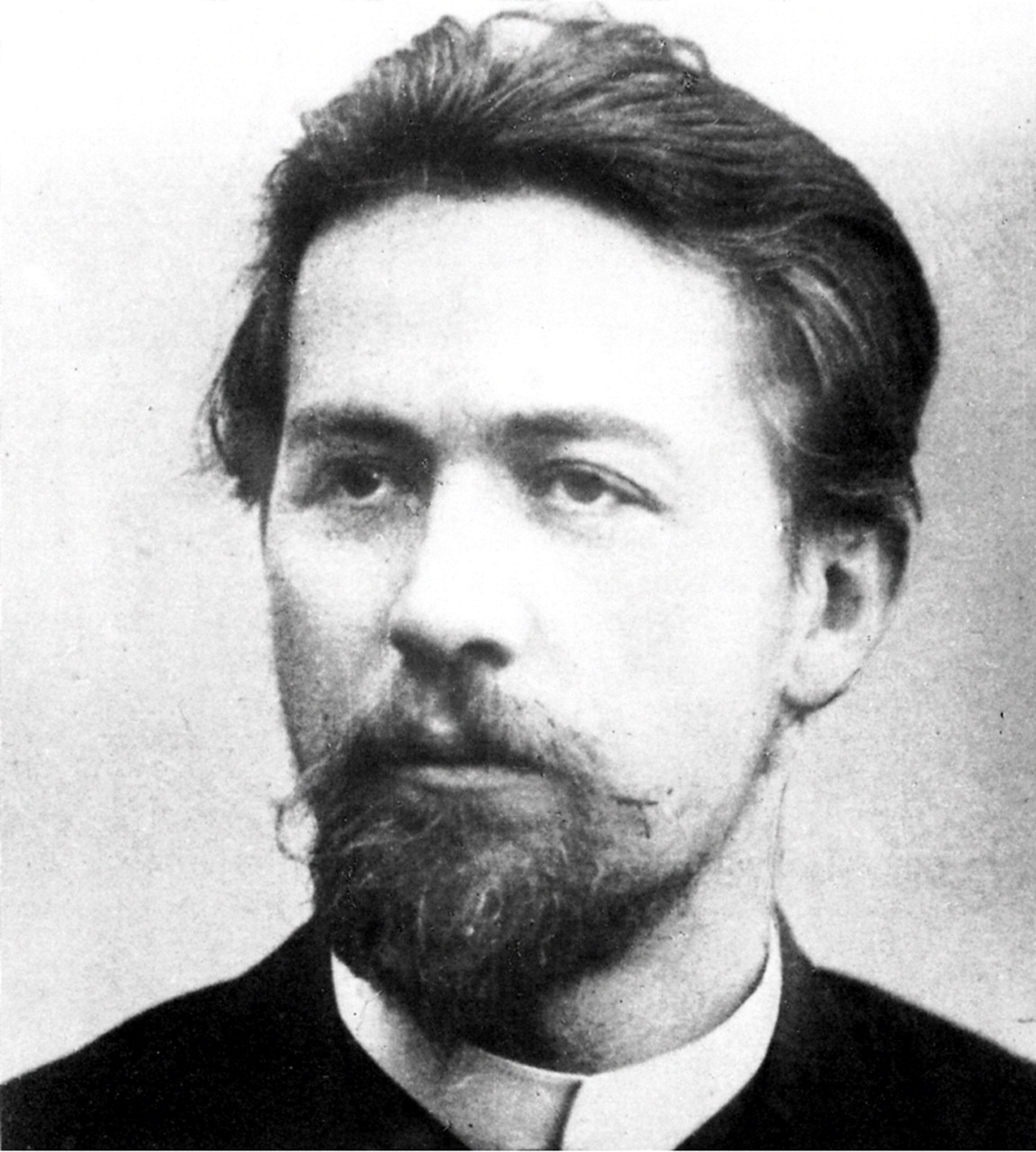Chekhov’s stories and plays show deep psychological insight. He realized that scientific rationalism could not give us the answers to some important questions, such as, “What is the meaning of life?” Thus, he presented man as a victim in an absurd world.
Chekhov graduated from medical school in 1884 and started working as a physician in a suburban Moscow hospital. Eight years later, he purchased the rundown Melikhovo estate 70 km south of Moscow. He lived there until his declining health due to lung tuberculosis forced him to move to the milder climate of Yalta.
In Melikhovo, Chekhov saw hundreds of patients, made more than a thousand house calls, and fought against cholera and illiteracy
(1). Although he practiced medicine by day, at night he wrote masterpieces—stories and two magnificent plays:
The Seagull and
Uncle Vanya. Although Chekhov was not a wealthy man, he did not charge his patients. In 1890, he made a journey across Siberia to Sakhalin Island, where Russian convicts were kept. The hardships of that journey and his 3-month sojourn on the island were frightful. His report of the trip includes a moving description of brutal beatings he witnessed that made such an impression on the Russian public that corporal punishment was abolished for women in 1897 and for men in 1904
(2).
Chekhov created hundreds of characters who show weakness, passivity, and ineffectiveness. His stories (Tolstoy compared them to impressionist paintings) and his best plays (including
Three Sisters and
The Cherry Orchard) still strongly appeal to readers and theatergoers the world over. Chekhov’s numerous characters include an array of more than 30 medical doctors who are hindered by various problems and poor working conditions. In his story titled
Ward No. 6, set in the psychiatric division of a provincial hospital, Dr. Ragin encounters a sparkling paranoid man named Gromov who has been confined for proclaiming that truth and justice must one day triumph. Ironically, Dr. Ragin is trapped by his superiors in his own ward, and after a beating by a nurse, he dies of a stroke. When the novelist Nikolay Leskov read this masterpiece, he said, “
Ward No. 6 is Russia!”
(3).
Chekhov clearly showed that the symbiosis of the muse and Æsculapius may increase the writer’s capabilities. He wrote to a friend, “Medicine is my lawful wife, literature my mistress. When I tire of the one, I spend the night with the other. As long as it does not become a regular habit, it is not humdrum and neither of them suffers from my infidelity”
(4). Thanks to his literary talent and his psychological approach, Chekhov improved both the modern story and the modern play.


